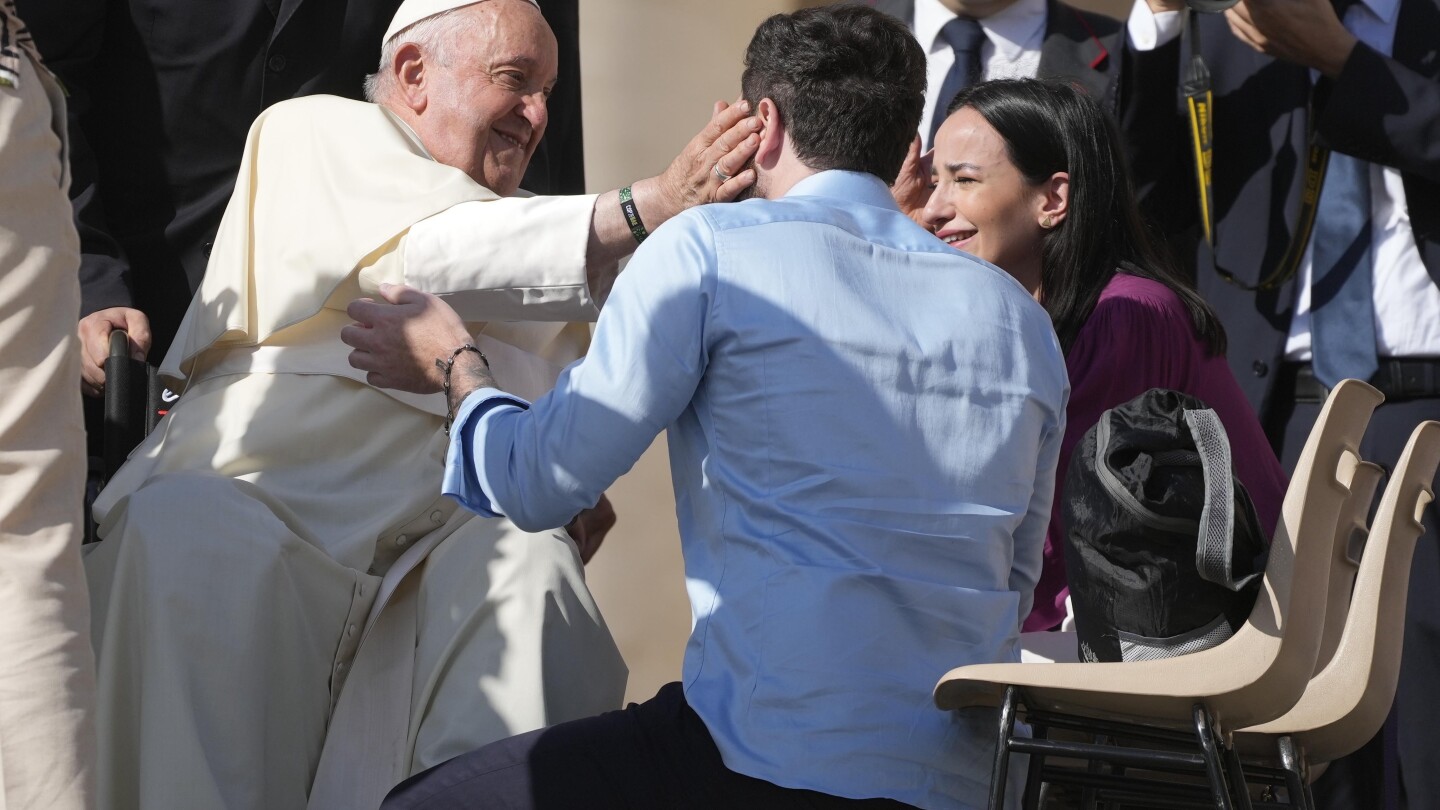Pope Francis has formally approved allowing priests to bless same-sex couples, with a new document explaining a radical change in Vatican policy by insisting that people seeking God’s love and mercy shouldn’t be subject to “an exhaustive moral analysis” to receive it.
The document from the Vatican’s doctrine office, released Monday, elaborates on a letter Francis sent to two conservative cardinals that was published in October. In that preliminary response, Francis suggested such blessings could be offered under some circumstances if they didn’t confuse the ritual with the sacrament of marriage.
The new document repeats that rationale and elaborates on it, reaffirming that marriage is a lifelong sacrament between a man and a woman. And it stresses that blessings should not be conferred at the same time as a civil union, using set rituals or even with the clothing and gestures that belong in a wedding.
But it says requests for such blessings should not be denied full stop. It offers an extensive definition of the term “blessing” in Scripture to insist that people seeking a transcendent relationship with God and looking for his love and mercy should not be subject to “an exhaustive moral analysis” as a precondition for receiving it.



At least in Italy, a religious marriage is legally bidining as much as a civil marriage because it is a byproduct of such.
For a civil marriage only, one only needs to show certain documentation, and the only requirement is both to be Italians, be 18 years old or more and both not already civil married (no gender requirements).
A religious marriage is not valid unless a civil marriage is iniciated first, where the rules of the religion of both partecipants are followed and applied in this case. Mixed religions/beliefs are allowed too, but they usually come with extra rules (for example, a marriage between a atheist and a chatolic is possible in a christian church as long as the atheist signs a swear to allow future children from the marriage to receive the chatholic education)
The choice of only a civil marriage or the added religious marriage brings the same rights and duties in the Italian law.